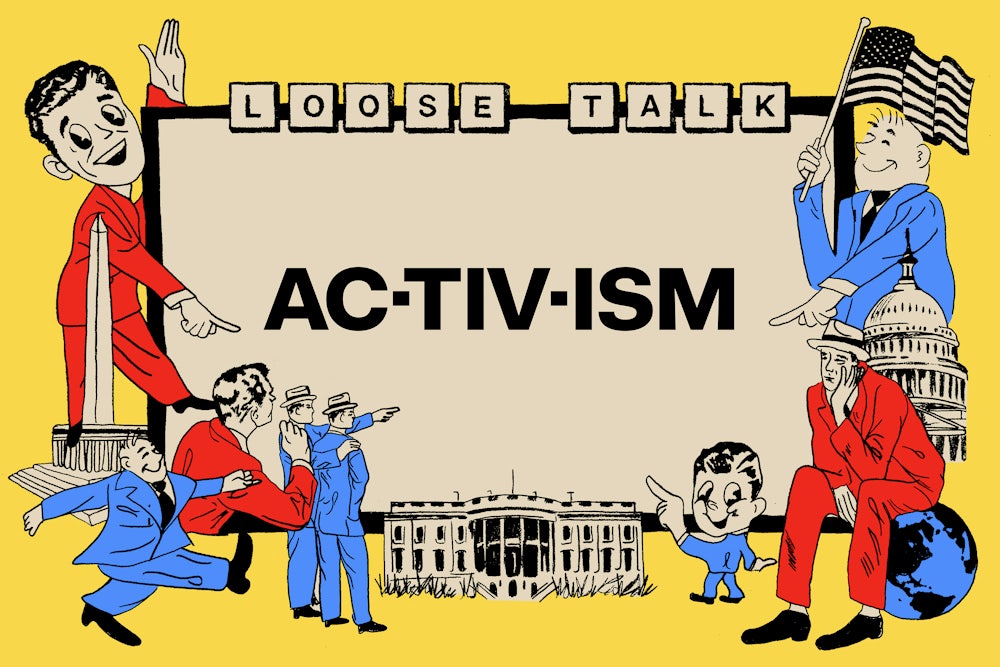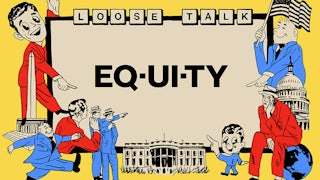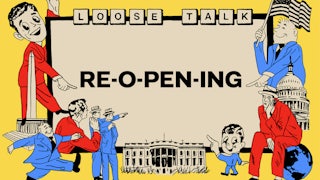When CBS announced The Activist, many lambasted the depraved concept: a game show where contestants compete in “media stunts, digital campaigns and community events aimed at garnering the attention of the world’s most powerful decision-makers,” such as celebrity judge Usher. Stung by backlash, CBS reformatted to minimize the competitive element. What remains, though, is its vision of “activism” as a career path and personal brand, whose purpose is to become famous enough to convince powerful people to agree with you.
We can’t blame CBS too much. Activism’s meaning is as fuzzy as the line between virtue and self-promotion can often be in practice. The term began as a translation of one of those German words for which there is no good English equivalent. It appeared in American newspapers in 1912, as the name Rudolf Eucken gave to his philosophy of spiritual self-improvement through strenuous effort, the subordination of shallow intellectualism to action. Vague at the time, it’s justifiably obscure now, but there’s something of Eucken’s undercooked notion of a spiritual workout regimen in the farcical competition for the title of America’s next top activist.
We use “activism” now to name something we lack a better word for, that strange phenomenon of citizens, in a politically disaffected, hyper-mediated consumer society, voluntarily devoting time and effort to serve a political cause on behalf of themselves and others only because they care a great deal about it. There are the union members who pay their dues, and there are the “activists,” who organize and mobilize. There are those who show up to demonstrations—and there are those who show up to all of them. What else are you supposed to call these people?
“Protester” doesn’t convey the appropriate sense of leadership; an “organizer” could be a freedom fighter, but it could also be a pocket calendar; “militant,” the widespread term for young Black radicals in the civil rights era, is now more often used in the media to describe armed insurgents abroad. So we fall back upon “activist,” even though action, as such, isn’t any more coherent as an ideology than it was as a philosophy.
Our sense of the word now mostly comes from the 1960s, when it became common in descriptions of campus unrest and civil rights protest. “Activism” still hearkens back to that decade, in the sense of activists as conscience of a generation or as esoteric longhairs. We still struggle to describe political participation in any but moralistic, condescending, or opportunistic terms—activism as a crusade, youthful dalliance, or career opportunity. Political activity becomes a realm of true believers and professionals, insulated from the strife of everyday life and the struggle of everyday people. It’s a vocation, and, if you’re lucky, a career, fit for a few. The co-worker who finally tells the boss to take her lousy job and shove it; the immigrant who quietly risks deportation to sign a union card; the protester who, enraged at another police killing, throws a brick. None of them are “activists,” as we usually mean it, and the “powerful decision-makers” at CBS will surely not be impressed. More power to them.






